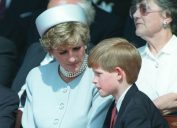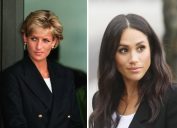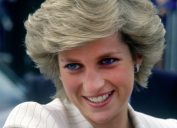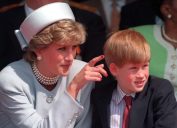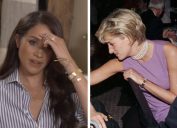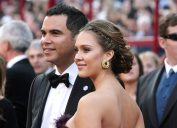Diana Would Have Healed William and Harry's Rift, Says Royal Biographer
According to the author, the princess would have thought, "It's time for the social distancing to end."
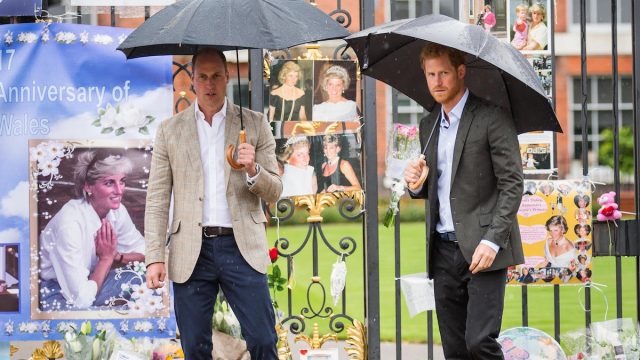
No one who saw them that day in Sept. 1997 will ever forget the heartbreaking sight of Prince William, then 15, and Prince Harry, just 13, walking behind Princess Diana's casket in the funeral procession through the streets of London. United in grief, the two young princes, forever known as "Diana's boys," were left to carry on her legacy after her sad and shocking death. Today, the once unthinkable split of the two brothers, literally living worlds apart—with William fully embracing his royal role as future king and Harry starting a new life in California—has royal watchers wondering, "What would Princess Diana do if she were still alive?" In his new book, noted British historian and author Robert Lacey attempts to answer that intriguing question. In a wide-ranging interview, he told Best Life, "I'm sure if Diana were alive, this wouldn't have happened." Read on for more from Lacey, and for other details from the expert on William and Harry's wives, check out Meghan-Kate Feud Rumors Hid the Real Truth.
Diana told her sons to be "expressive straight talkers."
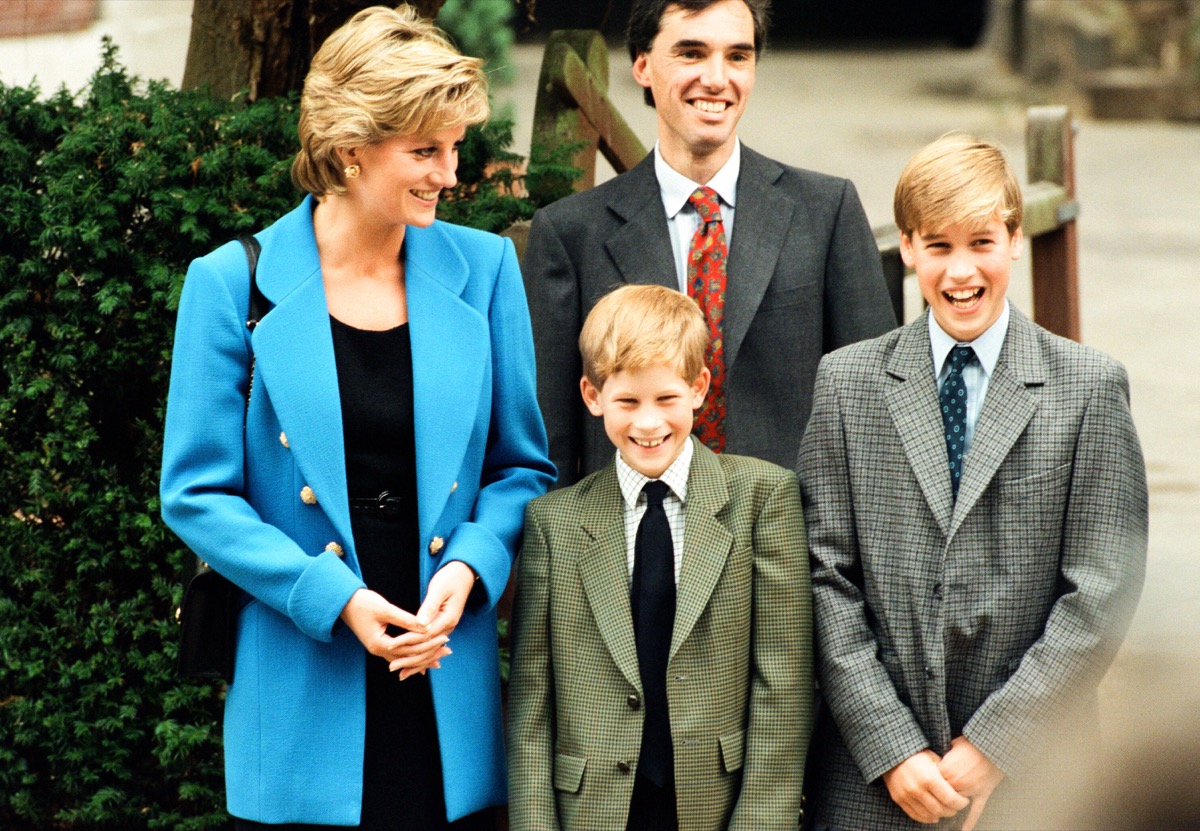
Lacey opens his book, Battle of Brothers: William and Harry—The Inside Story of a Family in Tumult, by explaining that Diana "raised her boys to get their feelings fully out in the open in a direct fashion, not stumbling and mumbling into their emotional cups of tea like so many other members of the Windsor clan." Ironically, it was that very advice that prompted her sons' rift and pushed Harry to his breaking point.
Lacey writes that Diana had succeeded in helping William and Harry grow up to be "expressive straight talkers"–especially with each other. In 2016, when Harry began dating Meghan Markle and started talking about marriage shortly thereafter, William, concerned by how fast his brother was moving, reportedly asked him, "Are you sure?"
Harry was infuriated and took it as a slight against his girlfriend, who's biracial and divorced.
She would have encouraged them to "talk to each other."
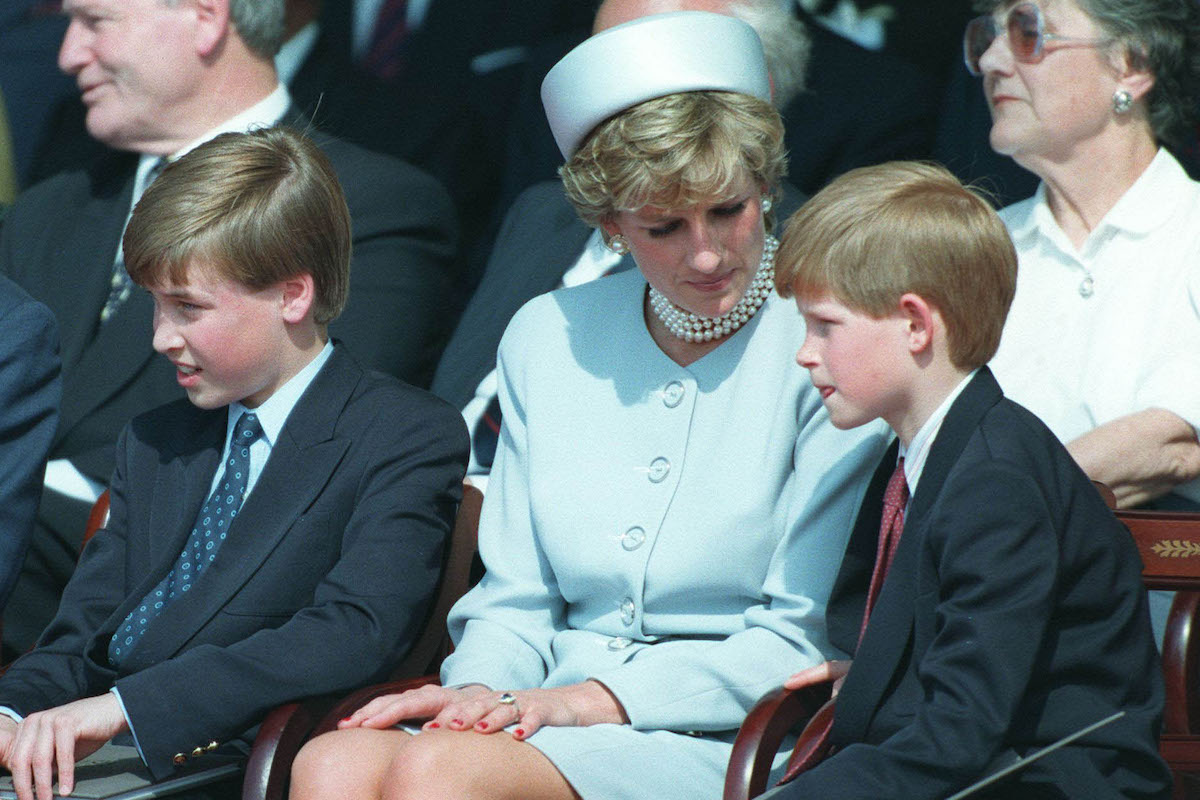
From that point on, Harry was convinced that Meghan was being disrespected by the royal machine at every turn and was not getting enough support from her in-laws. Diana, who also found herself on the outs with the royals, was ultimately exiled from royal life after her divorce from Prince Charles in 1996. She would have surely encouraged her sons to "talk to each other" despite their growing differences, said Lacey.
She would've warned Harry against airing his grievances.
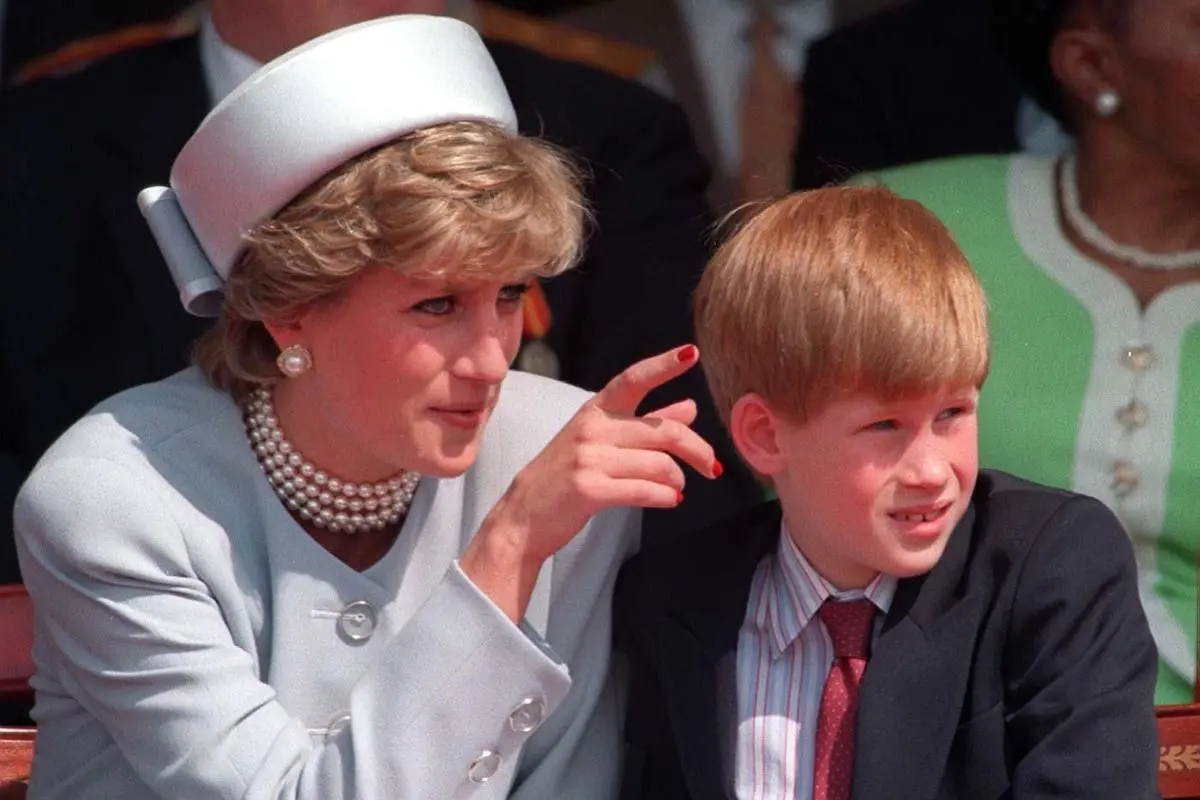
Harry and Meghan's interview with ITV's Tom Bradby in Oct. 2019 (where they both aired their grievances with royal life and Harry all but confirmed his rift with William) drew comparisons to Diana's infamous 1995 interview with the BBC's Panorama (where she revealed that both she and Prince Charles had been unfaithful in their desperately unhappy marriage). Diana later told friends she regretted doing the interview, so perhaps she would have reminded Harry of the disastrous outcome of her attempts to get out her side of story.
Just as Diana had been cast out after spilling too much royal tea and playing hardball with her divorce, the Sussexes faced a similar fate. Their decision to go public with their grievances and upend the monarchy without more than 10 minutes notice with their Instagram announcement that they were stepping down to "carve out a progressive new role" within the institution did nothing to encourage Queen Elizabeth to agree to their proposal to become part-time royals. Lacey writes that Harry and Meghan miscalculated the Queen's response to their "defiant and incendiary" behavior.
In the end, Harry and Meghan were made to relinquish nearly all of their responsibilities and prohibited from using the Sussex Royal moniker for any future initiatives in their quest for "financial independence." In the deepest cut of all, Harry was made to give up his military affiliations, something that may have been prevented if William had advocated for his brother rather than leaving the negotiations to others to sort out.
At the height of the Sandringham Summit, where the terms of the formal agreement between Harry and Meghan and the Royal family were hammered out, William reportedly told a friend, "I put my arm around my brother all our lives and I can't do it anymore. We're separate entities."
William and Harry's love for their mother would've forced them to resolve things.
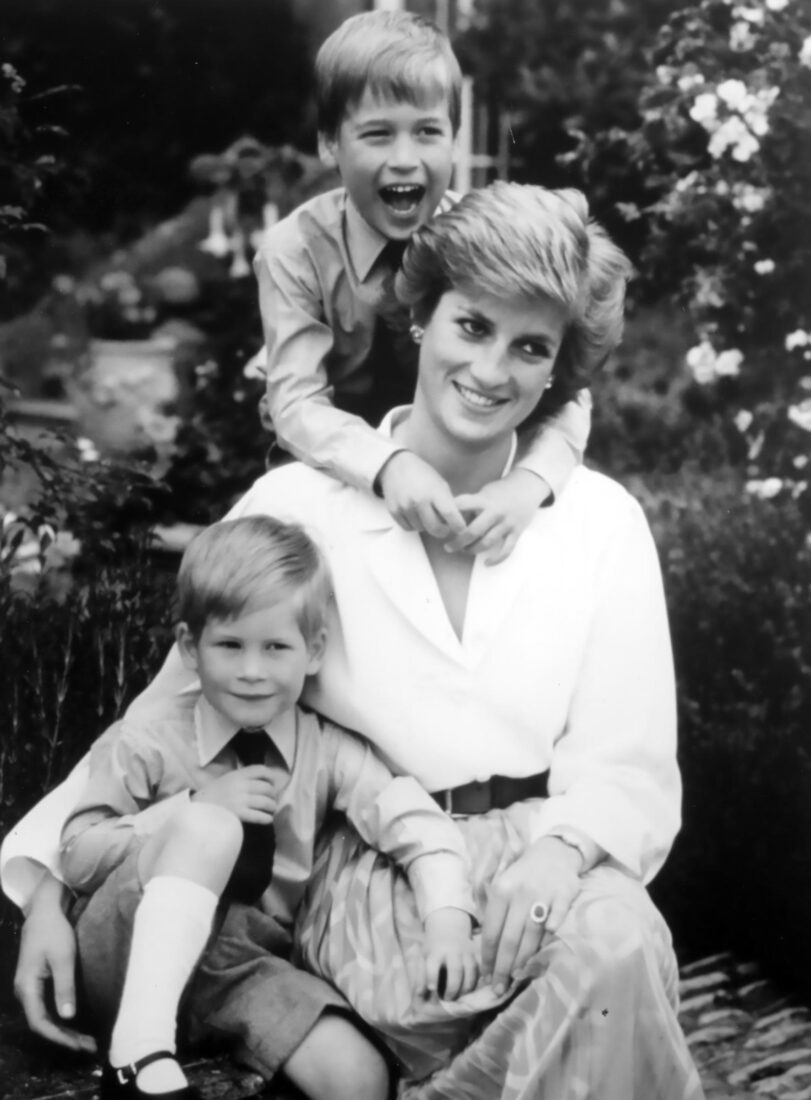
Less than three years before the now infamous ITV interview, William and Harry had spoken candidly about their relationship with their mother and the effect her death has had on them in the ITV documentary Diana, Our Mother: Her Life and Legacy. Harry called her "the best mum in the world," while William admitted there was not a day that goes by that he does not think of her.
"Most assuredly, Diana's influence would have remained a guiding force in William and Harry's lives. She would be heartsick about [the rift]," said one royal insider. "If for no other reason, their mutual love for their mother and unwillingness to do anything to hurt her would have forced them to deal with their differences head-on and find a way out of this mess."
With Diana not around to be the emotional glue bonding William and Harry together, things went from bad to worse. At the Sussexes' final appearance with the royal family at Commonwealth Day services in March, it was clear from both William and Harry's behavior that the gap had grown wider. William offered his brother a perfunctory "Hello, Harry" while his brother appeared to grow gloomier, looking positively furious as he exited Westminster Abbey behind Charles and Camilla, Duchess of Cornwall, and William and Kate Middleton.
Here they were, in the very church where their mother had been eulogized so dramatically by their uncle, Charles, Earl Spencer, more distant than ever.
Lacey believes Diana would not have let things stay as they are. After all these months apart, first by choice and then due to the COVID-19 pandemic, the author contends that Diana would have thought "that it is time perhaps for the social distancing to end." And for more on this, check out why Lacey thinks William "Does Not Foresee" Reconciling With Harry.
Diane Clehane is a New York-based journalist and author of Imagining Diana and Diana: The Secrets of Her Style.
